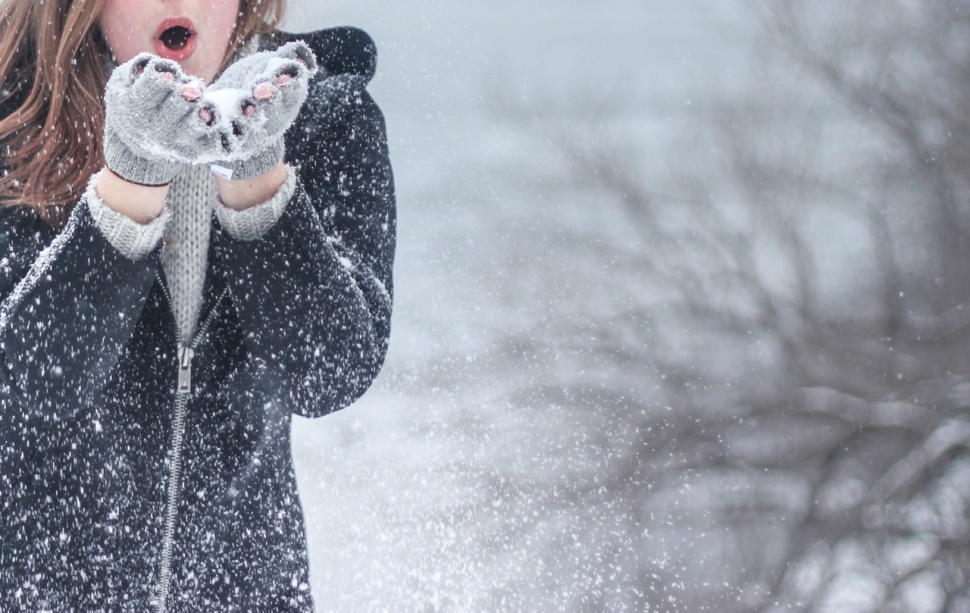It may seem that the at times uncomfortably hot summer months might make us more agitated and stressed. In reality however, the opposite is true; as temperatures dip we’re more likely to get hot under the snood.
A study by Friends Life found winter to be the most stressful season of the year. Indeed, over 60% of people in the study chose as it the most stressful over the rest of the seasons. The back to work blues that accompany the dreary month of January make it the most stressful month for over a third of people (35%). This was followed by December (20%), and then February (9%).
Not only do we feel more stressed in the winter, we’re not particularly well equipped to handle it. In a 2012 survey, 64% of respondents believed that it is “extremely important to manage stress”, however only 37% felt they were actually doing a good job at managing theirs.
Money trouble, lack of daylight and work-related stress have all contributed to rising stress levels in the winter months. From indoor workouts to meditation retreats, here are the best ways to keep calm over the next few months.
Meditation
Meditation and mindfulness are both useful tools in the battle against stress. Researchers found that five 20-minute sessions of IBMT (Integrative Body-Mind Training) meditation led to greater improvement in scores assessing conflict resolution, anxiety, depression, anger, fatigue, and vigour.
There has been a huge awakening in the general public in the last few years to the healing powers of meditation. Mindfulness is now available on the NHS, who claim it can help us battle stress and anxiety. In fact, some studies claim that “mindfulness-based cognitive therapy may be as good as pills at stopping people relapsing after recovering from major bouts of depression.”
Meditation is so popular that 8% of American adults practice it. Not only are there online meditation retreats available, designed to reconnect both your body and mind and reduce stress, but there are even meditation apps focussed towards improving your presence of mind that can help you with your quest for mindfulness any time of the day or night.
Exercise
Working out can be a useful tool in tackling stress. According to the Anxiety and Depression Association of America (ADAA) 14% of people make use of regular exercise to cope with stress.
Exercise in almost any form can act as a stress reliever, but there are some that are more related to stress relief than others.
Personal trainer Jon Denoris specifically incorporates his workout routines to help tackle stress in two important ways. Firstly, it can help you release pent up feelings of frustration and secondly the more frequently you exercise, the more you will raise your tolerance to stress.
Unfortunately, regular exercise is not always possible when you’re balancing working life with family commitments. Not only is work often the root cause of stress, but it can also often make you feel too tired to work out. It’s a downward spiral. However, that shouldn’t deter you!
Lunchtime runs are a great way to recharge the batteries and clear the mind. Alternatively, you don’t even need to get from your seat with ‘deskercise’, a way of working out that doesn’t involve braving the winter weather.
Eating well
Tackling stress isn’t just about what you do, it’s also about what you eat. Stress can cause us to overeat, affecting both our health and happiness. According to the Harvard Medical School “stress, the hormones it unleashes, and the effects of high-fat, sugary “comfort foods” push people toward overeating.”
The Physicians Committee for Responsible Medicine recommend eating high-fiber, carbohydrate-rich foods such as baked sweet potatoes, minestrone soup, or sautéed vegetables over rice to combat stress. They also suggest limiting fatty foods, caffeine and sugar.
It is also likely that in winter you don’t get enough vitamin D. In warmer months we generally get enough vitamin D from sunlight alone. From September to March this just isn’t possible. As well as brittle bones, a lack of vitamin D can make us feel tired and overworked. To combat this, it is important to eat foods high in vitamin D. These include oily fish such as salmon, mackerel and herring, as well as red meat and eggs.
Not drinking too much
During the December holidays it’s likely that many of us will drink too much. Although most people generally drink out less in winter, many just choose to drink in instead.
Steve Bressert, Ph.D, writing in Psych Central, claims that many use drink as a coping mechanism. He states that people drink as a means of “coping with modern life and its accompanying economic stress, job stress and marital discord.” Furthermore, he points out that “people with excessive or chronic stress often drink to excess.”
Self-medicating stress with alcohol is a dangerous road to go down. It can be tempting to see alcohol as a stress reliever, but this only works in the short term. Alcohol can increase health risks and in turn stress over time. In addition to this, alcohol is a depressant and can actually cause us to feel more stressed. You’re much more likely to find a longer term solution to stress in mindfulness, a healthy diet, regular exercise and, if necessary, professional help and prescribed meditation.


